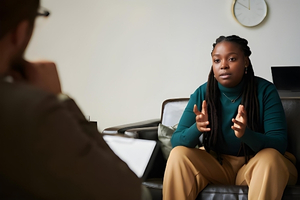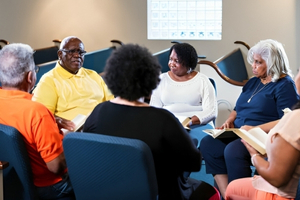
If you’re reading this, it’s likely because you care deeply about your community and the stories that bind you together. Historical trauma is a heavy burden that many communities, particularly those within the Black diaspora, carry. Rooted in centuries of oppression, violence, and loss, it continues to impact lives today. Acknowledging this trauma is the first step toward healing. So, let’s dive into three tips for addressing historical trauma in your community by making use of existing resources, promoting empathy, and establishing healing environments.

One of the most powerful ways to address historical trauma is through education. Understanding the historical context of your community can help you grasp the impact of systemic oppression on individuals and families. Many organizations and institutions provide educational materials, books, and documentaries that delve into Black history, cultural heritage, and the effects of historical trauma from a global perspective.
By immersing yourself in these materials, you’ll be better equipped to understand the complexities of historical trauma. Remember, education is an ongoing journey, and engaging with these resources can lead to deeper conversations with friends and family.

Healing from historical trauma often requires support from others who understand your experiences. Many organisations focus on mental health and community healing, offering workshops, therapy, and resources specifically tailored for individuals across the Black diaspora. Whether you identify as African American, Afro-Caribbean, Afro-Latinx, or part of any other Black heritage, there are networks and resources available to support your healing journey.
Connecting with these organisations can create a sense of belonging and understanding. You don’t have to navigate the journey alone. Engaging with others who share similar experiences can provide the support and encouragement needed to heal.

Many communities have local organisations that focus on healing and reconciliation. These resources can help facilitate conversations around historical trauma and provide avenues for communal healing.
Engaging with these community resources can help foster understanding and create a supportive atmosphere for healing. You’ll find that many people are eager to connect and share their experiences, making it easier to confront the complexities of historical trauma together.
Addressing historical trauma isn’t an easy journey, but it’s one worth taking. By exploring educational resources, seeking support networks, and utilising community healing resources, you can play a role in fostering understanding and creating space for healing.
Remember, you’re not alone in this journey. Many individuals and organisations share this commitment to healing and empowerment. Lean on each other, support one another, and keep the conversations going. Together, we can transform our communities, honouring the past while looking toward a brighter future.
So, as you step away from this blog post, I encourage you to take action. Explore the resources mentioned, engage in conversations with those around you, and support your community. After all, healing begins with us.
4-minute read Have you ever found yourself lying awake at night, heart heavy with worry about your teenager’s safety during interactions with the police? It’s a question that lingers for many parents and caregivers, especially when history and statistics both
4-minute read I’ve spent a lot of time thinking about beauty—what it means, who gets to define it, and whether it’s really as inclusive as we like to think. And the more I look at it, the more I realize
4-minute read Let’s be honest—the Hidden Agenda Behind Beauty Ads is everywhere. They follow us on our phones, pop up in our social feeds, and even sneak their way into our subconscious when we least expect it. One minute you’re